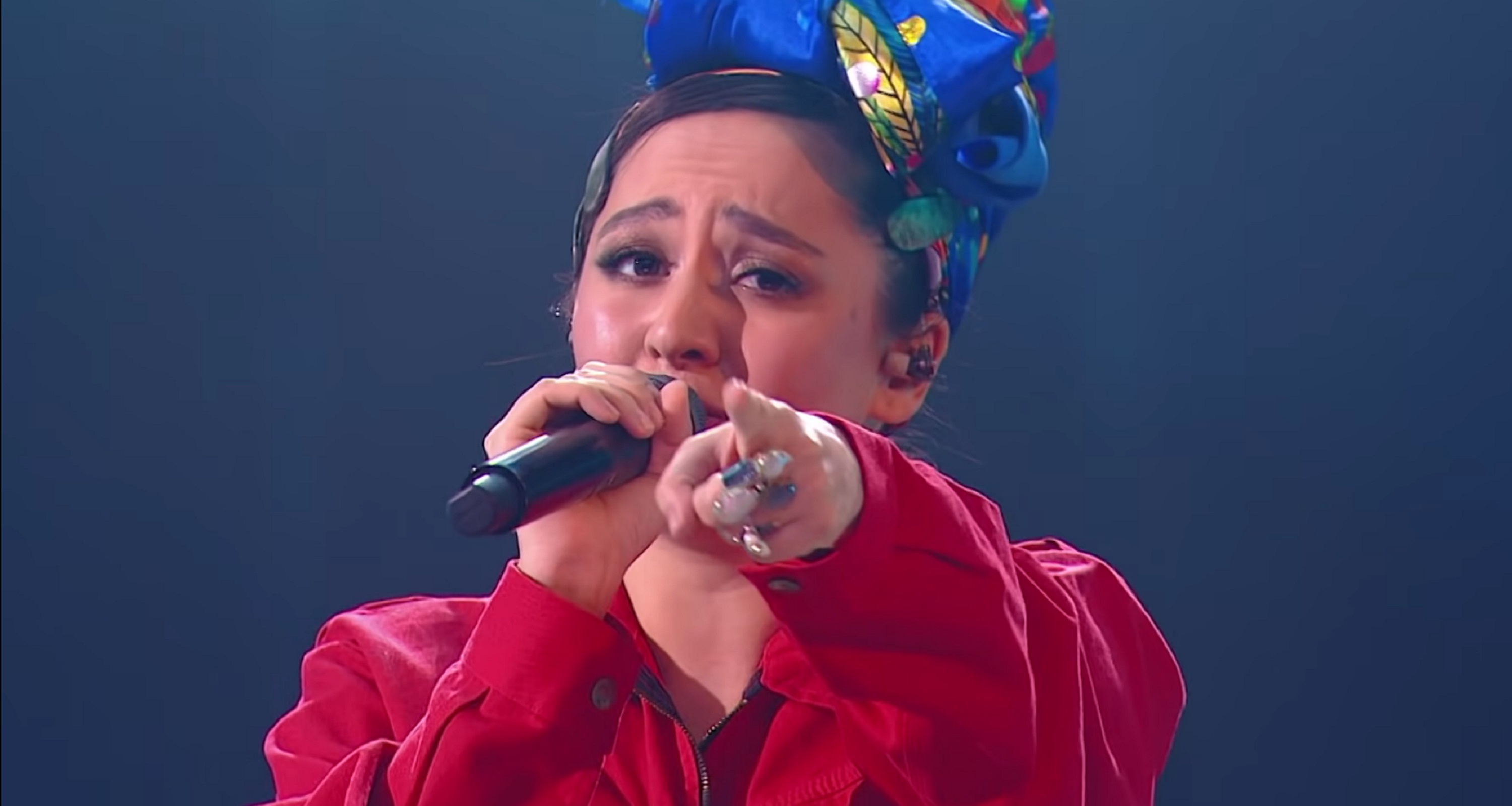Eurovision slammed for allowing Russia to compete in 2022 despite invasion of Ukraine
Contest is a "non-political cultural event", say reps.

Words: Jamie Tabberer; Image: Russia’s 2021 Eurovision contestant Manizha (YouTube)
Russia will still be allowed to compete in this year’s Eurovision Song Contest despite invading Ukraine, a rep has confirmed.
Russian leader Vladimir Putin spoke of what he calls Russia’s “special military operation” in a TV address yesterday, warning of “consequences greater than any you have faced in history” over any attempted interference.
UK PM Boris Johnson said Putin has “unleashed war in our European continent” before promising a “massive package of economic sanctions” on the country.
After reports of Russian troops setting off explosions in capital city Kyiv, Ukrainian health minister Viktor Lyashko said 57 citizens were dead and 169 wounded.
The death toll has since risen to 157, according to some reports.
“Monitor the situation closely”
Responding to the news, Eurovision organisers said their contest is a “non-political cultural event” and that they were “currently planning” to host entrants from Russia and Ukraine this year.
As per the BBC, the reps added: “We of course will continue to monitor the situation closely.”
Reps for UA:PBC, the Ukrainian state broadcaster, slammed the decision, saying the Russian broadcasters responsible for Russia’s entrant are “a mouthpiece for the Kremlin and a key tool of political propaganda” that partake in “systematic dissemination of disinformation.”
This year’s Eurovision Song Contest takes place in Turin, Italy from 10-14 May 2022.
Russia is yet to pick its entrant, while Ukraine will be represented by Kalush Orchestra [pictured below] and their song ‘Stefania’.
View this post on Instagram
Tension between Russia and Ukraine has impacted the Eurovision Song Contest several times in recent years.
In 2016, Russia was favourite to win the competition before Ukraine’s entry Jamala swept to an unexpected victory with her song ‘1944’, describing the deportation of Crimean Tartars by Soviet Union leader Josef Stalin in 1944.
Coming just two years after Russia’s annexation of Crimea in 2014, the symbolism of the song was not lost on voters, despite Eurovision’s ban on ‘political’ songs.
A year later, Russia’s Eurovision entrant Julia Samoylova was blocked from entering Ukraine for the competition after reportedly touring Crimea by entering through Russia rather than Ukraine. In response, Russia withdrew from the competition and refused to broadcast it that year.
In 2019, Ukraine’s original Eurovision selection Maruv was dropped from the competition after refusing to sign a contract with Ukraine’s national broadcaster which would have reportedly banned her from performing in neighbouring Russia.
And earlier this year, Ukraine’s original selection for the 2022 contest, Alina Pash, withdrew last week after facing backlash over a trip she made to Crimea in 2015.
